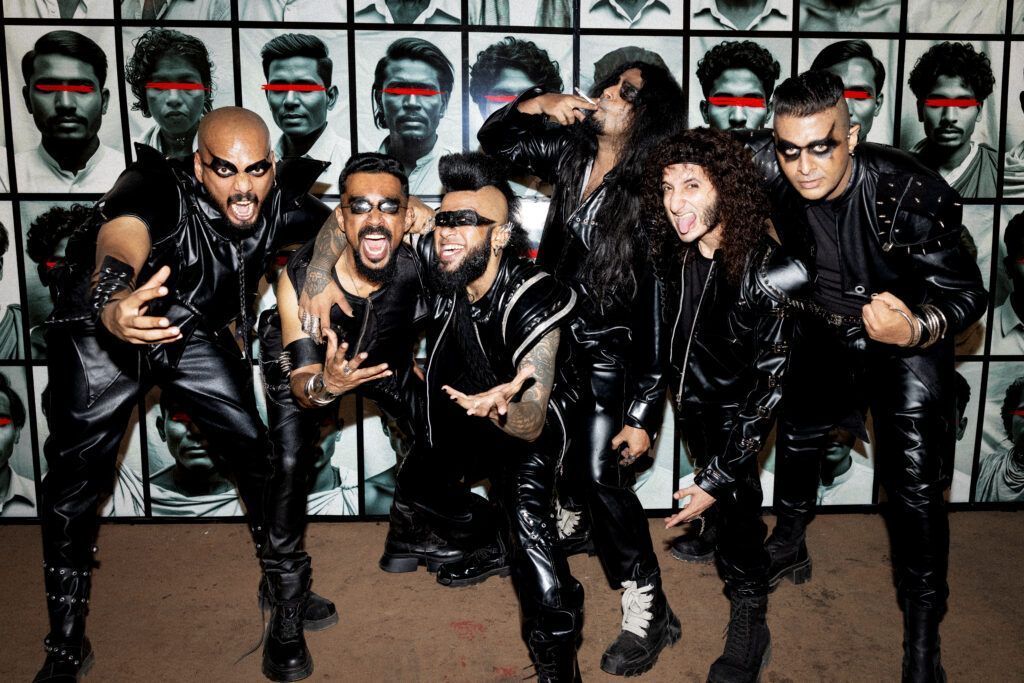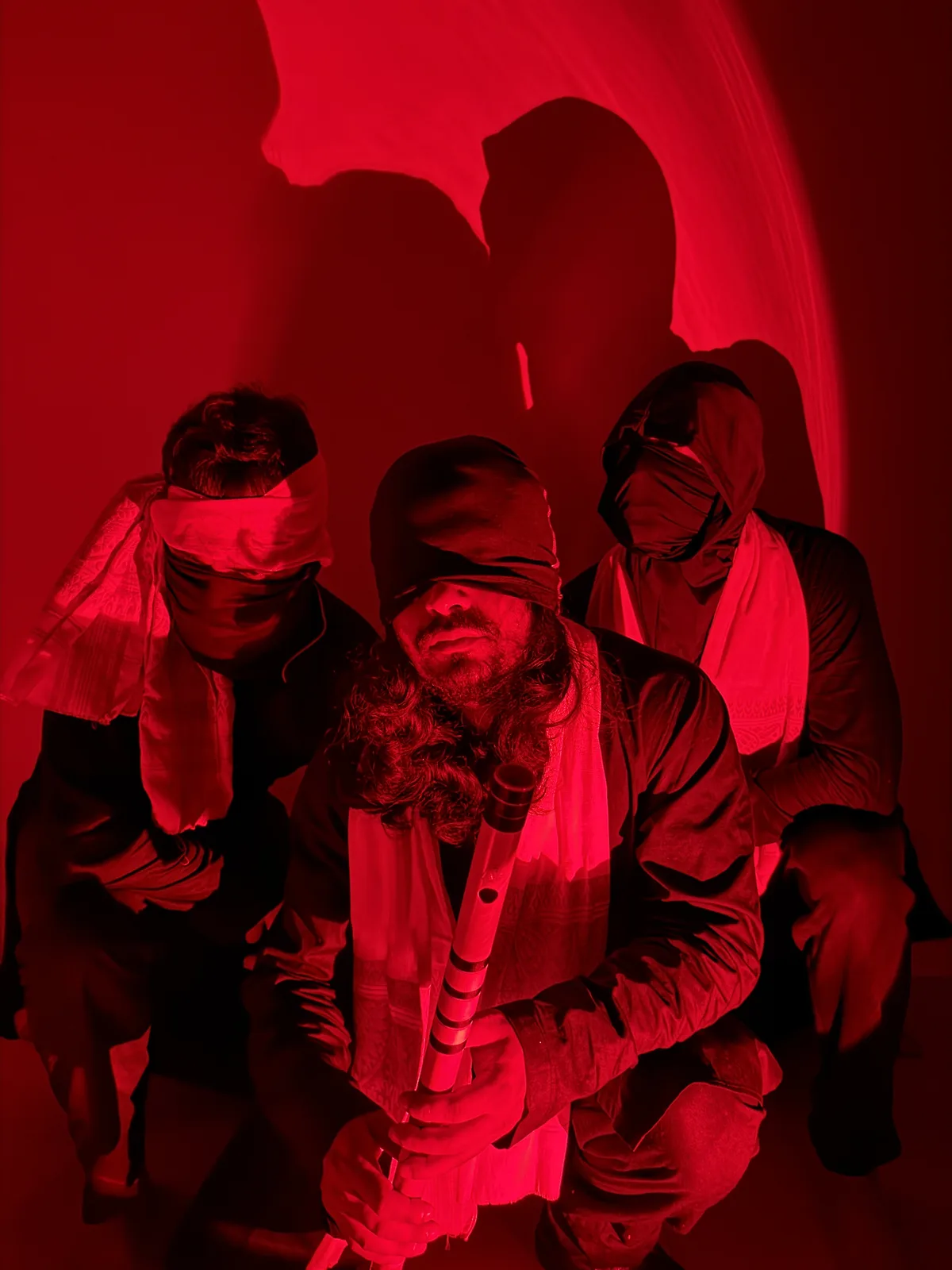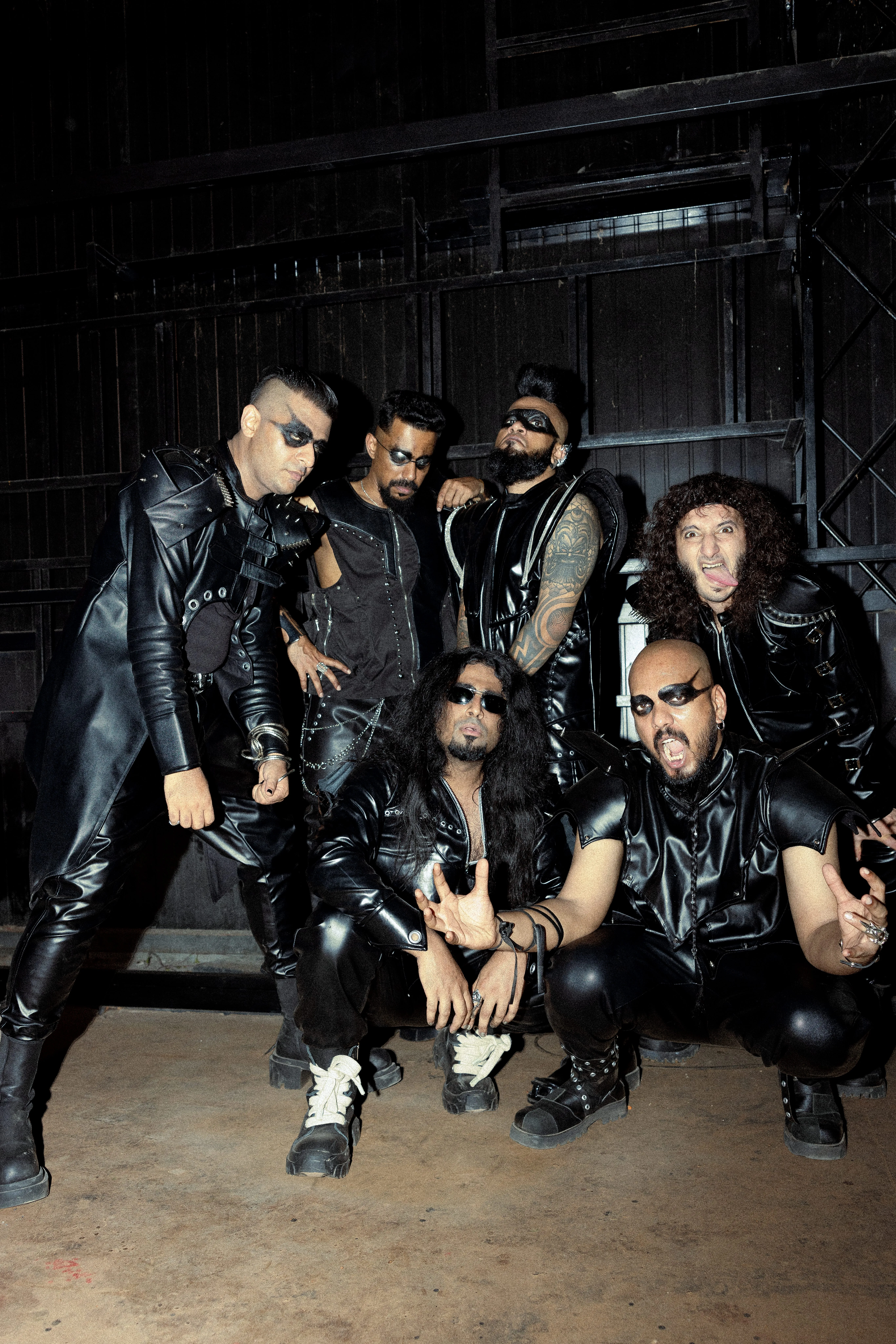The Down Troddence (TDT) is a six-piece metal band originally from Kannur, Kerala, now based in Bangalore. Known for blending traditional thrash and groove metal with local folk influences, the band is acclaimed for their socially conscious lyrics—especially addressing casteism and injustice—delivered powerfully in Malayalam. Since their debut in 2014 with How Are You? We Are Fine, Thank You, which swept eight Rolling Stone Metal Awards, TDT has built a loyal following despite the challenges of sustaining a metal act in India’s shifting indie landscape. Their long-awaited second album, As You All Know, This Is How It Is, showcases their evolved sound and enduring commitment to raw, politically charged music.
In a conversation with us, they talk to us about their journey so far.
1) Tell us a bit about your project. How did you begin your journey as an artist?
Our journey began in Kannur as a bedroom project back in 2008. After releasing our first video Shiva, we shifted base to Bangalore, which became a turning point. The release of our debut album How Are You? We Are Fine, Thank You in 2014 earned us 8 wins at the Rolling Stone Metal Awards. Our second album, As You All Know, This Is How It Is, took a decade to complete—life took each of us down different paths, but we kept coming back together when opportunities presented. Despite rare full-band sessions, we kept pushing forward, and our growth is evident in this album.
2) Which bands/artists were your first love? Who is your biggest influence?
Each of us has diverse musical tastes, but our common ground lies in bands like Lamb of God, Slipknot, Megadeth, Opeth, Linkin Park, Limp Bizkit, Karnivool, Tool, Porcupine Tree, Animals as Leaders, and David Maxim Micic to name a few. Beyond metal, we also draw from genres like electronica, funk, jazz, hip-hop, classical, and experimental music.

3) Tell us a bit about your latest release, Ejjathi.
Ejjathi is one of the most socially charged tracks in our catalog, confronting casteism in India head-on. We felt the theme deserved equally powerful visuals, so we collaborated with acclaimed filmmaker Chidambaram, known for Janeman and Manjummel Boys. The music video was shot over two intense days and blends metaphor, expressionism, and symbolic visuals to deliver the song’s message. It was recently released via Think Music India and has been met with overwhelmingly positive feedback and engagement.
4) What is your music-making and recording process like?
Our process is fluid—songs can start from a conversation, a riff, or an acoustic jam. We usually begin with guitars and drums, followed by bass, vocals, keys and sound design. We often record memos and later develop those ideas in our DAWs. The structure and style evolve through constant back-and-forth, always with a visual narrative in mind.
5) How did you balance lyrical clarity with the raw sonic texture of thrash? Malayalam isn’t often heard in this genre.
We chose Malayalam for Ejjathi because the message is deeply personal, and nothing captures that better than our mother tongue. Malayalam being the curvy language that it is can be tricky and mouthful at thrash tempos, but we kept the vocal layers minimal for clarity. It was a challenge, but it paid off in delivering the message with impact.
6) Which Indian bands or artists do you admire, and why?
We admire many Indian bands across genres, but from our scene, names like Avial, Motherjane, Scribe, Bhayanak Maut, Joint Family, Skyharbor, and Inner Sanctum stand out. We also grew up listening to Pakistani bands like Strings, Junoon, Noori, and Fuzon to name a few. All of them have created timeless music that transcends borders.
7) Is there a particular moment in the music video that captures the essence of Ejjathi for you personally?
The opening scene with the matrimony office and green screen figures encapsulates the societal typecasting of bride and groom essentials and hypocrisy around casteism in marriage. A standout moment is during the line “Mangalam muthal Advaitham vare, ellam ellam jaathi thanne,” where the visual metaphor before the outro perfectly drives home the pervasive nature of caste.
8) What’s been your biggest challenge in sustaining a metal band in India’s indie scene?
Metal will likely never be mainstream in India, making sustainability tough. It demands years of dedication without financial returns. We’ve managed to keep TDT alive thanks to our day jobs and shared passion. The challenge lies in surviving those early years without giving up.
9) Why do you make music? What drives you as a musician, and what are your songs about?
Making music is our way of staying alive and honest. It’s how we process the world around us. Our music is both personal and political—a reflection of society and our inner lives. Ultimately, we do it for the joy of creating and the thrill of performing live.
10) What’s your take on the independent music scene in India?
The indie scene has evolved. A decade ago, it was band-centric; now, electronic and hip-hop dominate. Guitar-driven music isn’t in the spotlight like before, but we hope our new album stirs the waters and reintroduces listeners to that raw energy.





























